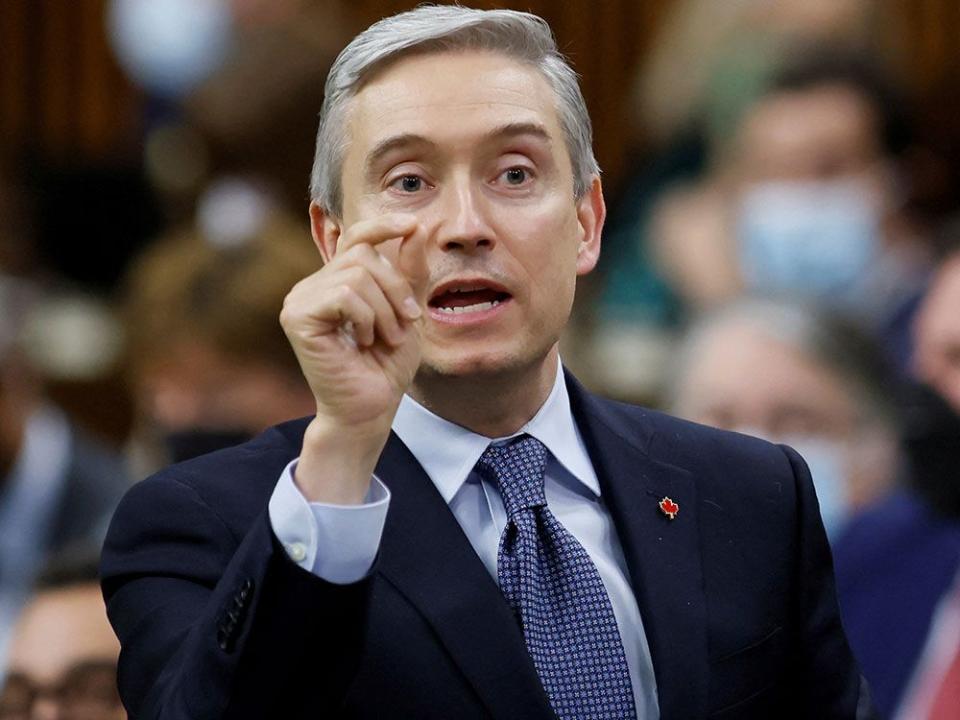Security concerns compel Ottawa to make 'most significant update' to Investment Canada Act in a decade

Prime Minister Justin Trudeau’s government tabled legislation that would give the industry minister more time and authority to assess foreign transactions that might compromise national security, while also making penalties for violating the Investment Canada Act more severe.
The amendments would help the government align with the “changing global dynamics” and address new threats that may rise from foreign investments, an allusion to worries in the West about China’s growing influence, the government said in a statement.
“Geopolitics of the world today has vastly changed in the last few years; that’s why we must be prepared to face the challenges that could endanger our economic security and our national security,” Industry Minister François-Philippe Champagne said at a press conference on the evening of Dec. 7.
“We need to be more vigilant and this is going in that direction,” said Champagne, who described the proposed changes as the “most significant update of the law in more than a decade.”
The Investment Canada Act (ICA) allows for the review of foreign investments in Canada based on a number of factors that include “net benefit” to the economy and national security. The legislation dates to the mid-1980s, a time when free-trade principles were ascendent around the world. That phase of globalization would lead to the fall of the Berlin Wall, the collapse of the Soviet Union, and China’s admission to the World Trade Organization in 2001.
Globalization is now headed in another direction.
A month ago, Canada’s government used the ICA to order three Chinese companies to divest their stakes in Canadian miners, citing results of a multi-step security review. This took place after the federal government in late October said any attempt by a state-owned enterprise to purchase assets in Canada’s critical minerals sector could trigger a section of the ICA that determines whether deals could be “injurious to national security,” requiring lengthy review.
“We have gone from an era where foreign engagement strategy was centred around trade to an era that security is now the dog that wags the trade tail,” said Carlo Dade, trade director at the Canada West Foundation, a think-tank.
One of Champagne’s proposed amendments would require new filings from businesses in certain sectors prior to the implementation of the investments, giving the government a chance at an earlier stage to involve itself with transactions where there is risk of a foreigner gaining access to sensitive information.
Some of the sectors that the government will be keeping an eye on include critical minerals, artificial intelligence and businesses dealing with personal data, said Champagne.
The bill also proposes to provide the industry minister with the power to conduct extended national security reviews of investments. Currently an order from the Governor in Council is required for this multi-step process. The change will make the review process more “efficient and flexible,” the government said.
In addition, the changes would bring stronger penalties against businesses that don’t comply with the act, as opposed to the existing ones that were established several decades ago and haven’t been revisited.
The bill also includes a provision that would allow the minister to disclose information about an investor to allies to support their foreign investment and national security reviews. Currently, information about a specific investor cannot be disclosed.
When asked if the increased scrutiny might discourage Canada’s allies from investing in the nation, Champagne said: “I have no concern. I have been traveling the world recently and everyone wants to invest in Canada.” He added that other countries were also tightening their economic provisions due to the current geopolitical scenario.
“The proposed changes would formalize clearer and stricter processes under the act, allowing the government to more effectively implement them,” said Bob Fay, managing director of digital economy at the Centre for International Governance Innovation, a think-tank.
Ottawa orders Chinese companies to exit three Canadian lithium miners
Canadian lithium miner ordered to break with Chinese investor finds replacement in Australia
'They see stability and calm here': Canada looks like a good place to invest to some EV producers
Twenty-four investments were subject to extended national security reviews in the fiscal year that ended March 31, 2022. So far, in the current fiscal year, the government ordered Sinomine Rare Metals Resources Co., Chengze Lithium International Ltd. and Zangge Mining Investment Co. to divest from Canada’s Power Metals Corp., Lithium Chile Inc. and Ultra Lithium Inc., respectively.
Analysts say the move to push China out of the lithium industry is part of a series of steps being taken by the United States, bigger European economies, Canada and other democratic economies to shift their industries’ supply chains away from China, which dominates the EV industry, and towards friendlier nations.
Reflecting on the move, Trudeau said at an event on Dec. 5 that he wants to make sure that Canada is “in control” of its critical minerals so that the country’s allies can rely on the nation at a time when the demand for these minerals have increased primarily due to the rise in sale of electric vehicles globally, as the world looks to shift away from fossil fuels.
• Email: nkarim@postmedia.com | Twitter: naimonthefield

 Yahoo Finance
Yahoo Finance 